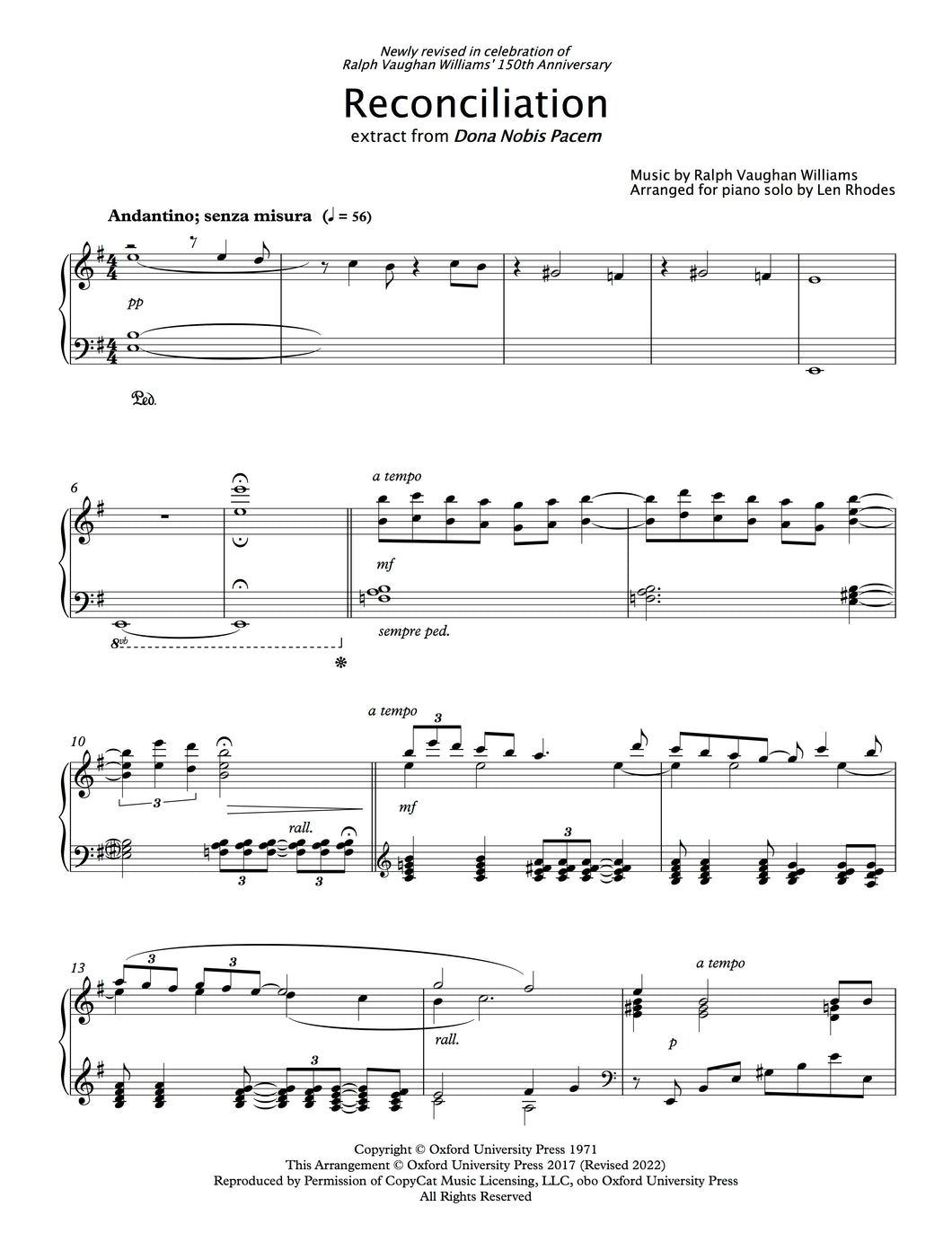
Dona Nobis Pacem - Reconciliation, Ralph Vaughan Williams - Piano Solo
Regular price
$4.95
Sale
Ralph Vaughan Williams - ‘Reconciliation’ from his cantata Dona Nobis Pacem now available in a newly transcribed arrangement by Len Rhodes for piano solo; based on the opening thirty-six bars. Eric Saylor, in his recent book (2022) on Vaughan Williams in the OUP ‘Master Musicians’ series highlights “…the shimmeringly transparent texture (in ‘Reconciliation’)…which convey’s some of the cantata’s most ethereal music."
mp3 recording available on this site; or LISTEN to Len Rhodes studio recording in Cheltenham, England (December 2023).
What the critics say:
“I've listened to it (LR recording) many times and each listening has revealed new complexities...and feel the entire range of emotions during the unfolding. Even the title is indicative of an internal tension and release.” Mark J. USA
The rights to this arrangement were generously granted by the Ralph Vaughan Williams Estate. This arrangement and recording for piano solo is available exclusively through this site.
READ about Len in the Ralph Vaughan Williams Society Journal, October 2023.
I worked with Ursula Vaughan Williams in the 1970's on the preparation of some music for her, and consider myself very fortunate to have had a direct link with RVW.
“…Among the poems by Walt Whitman (1819–1892) which RVW had set to music before the First World War was the Dirge for Two Veterans. This became the starting point for a new work in which he used two more poems both of which, Beat, beat drums, and Reconciliation, came from Whitman’s experiences during the American Civil War….all linked by a soprano voice whose repeated, imploring ‘Dona Nobis Pacem’ gave the cantata its name...’ - from ‘A Biography of Ralph Vaughan Williams’ by Ursula Vaughan Williams, OUP 1964.
Walt Whitman (1819–1892), America’s most revered poet, spent much of the American Civil War as a volunteer in hospitals in Washington, D.C., nursing injured Union soldiers, helping them write letters to their wives and families, witnessing their agonies, and not infrequently watching them suffer and die. Like Lincoln, whom he loved, Whitman understood that once the war was over, national reconciliation would become the country’s foremost task. The "Word" Whitman refers to in the first line is, of course, "Reconciliation" -- the poem's title. He draws on natural imagery ("beautiful as the sky"), he plays at contradictions ("beautiful that war") to get at the healing power of Reconciliation. In the last three lines, he redefines "Reconciliation" in personal, human terms. Whitman places the poem in a specific time and place: a funeral. “Reconciliation” is now among the most loved of Whitman’s shorter poems.
#ralphvaughanwilliamslenrhodesmusic
#lenrhodesmusicpublications
#sheetmusiclenrhodesmusic
#lenrhodesmusicvaughanwilliams
